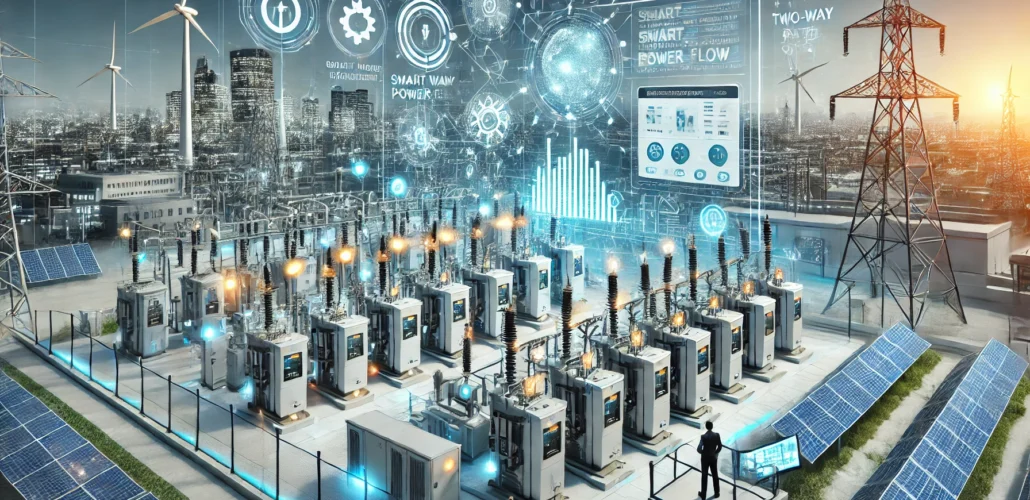Reinforcement Learning Improves Smart Grid Management
Reinforcement learning allows the grid to learn and adapt to changing conditions in real-time, making it more efficient and reliable.

Image for illustration purposes.
One example of reinforcement learning in action is in the management of home charging for renewable energy users. Researchers at the State University of New York (SUNY) used reinforcement learning to optimize the charging of batteries in homes, ensuring that energy was distributed fairly and that the grid remained stable. This was achieved by allowing the reinforcement learning algorithm to interact with multiple battery systems simultaneously, learning and implementing optimal charging operations.
Reinforcement learning can also prevent grid overload by optimizing charging schedules and allocating power based on real-time grid constraints. This is achieved by adopting an adaptive power allocation approach that monitors individual battery charge levels and allocates power accordingly.
In addition to these benefits, reinforcement learning can also ensure that all users receive a fair energy distribution, avoiding significant disparities among the state of charge of all home batteries in the local grid network. This also ensures that users have enough energy in their batteries and that these levels are maintained above a certain threshold, avoiding battery depletion.
Reinforcement learning differs from other optimization techniques in that it is a dynamic approach that continuously learns through interaction with its environment. This enables reinforcement learning algorithms to adjust their policies based on received rewards and penalties, allowing the control algorithm to continuously adapt to ever-changing energy landscapes.
Deep reinforcement learning (DRL) is a type of reinforcement learning that has attracted attention for its excellent performance in operation problems with high uncertainty. DRL has been applied to smart grid operations, including optimal operation and control issues. However, there are still challenges to be addressed, and future research directions are being explored.
Overall, reinforcement learning is a promising approach for improving smart grid management, enabling the grid to learn and adapt to changing conditions in real-time. Its applications in home charging, grid stability, and energy distribution make it an exciting area of research and development.
Source: EE Power
#Adaptive power allocation#AI#artificial intelligence#Battery depletion#battery management#Deep reinforcement learning#Dynamic learning#energy distribution#energy storage#Fair energy distribution#grid optimization#grid stability#Home charging#Operation problems#power systems#Real-time control#Reinforcement learning#renewable energy#smart grid#Smart grid management#switchgear#Uncertainty



